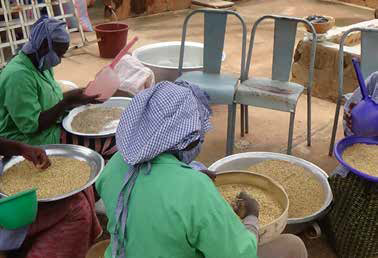
Description of the project: The project supports 100 micro, small and medium-sized enterprises (MSMEs), with a focus on feminized sectors, to adopt sustainable production and management methods. Technical support is provided on resource efficiency and clean production (ERPP), industrial symbiosis (IS), and energy auditing. Economic and environmental benefits have been evaluated. The impact for at least 80 MSMEs includes saving energy and primary materials, conserving natural resources, reducing/ eliminating polluting waste and diversifying and creating jobs. National and regional platforms are put in place for scaling up.
Climate impact: By reducing the use of natural or extractive raw materials (oil, gas, coal) and the downstream production of polluting and emitting waste (CO2, methane), ERPP and the IS methodologies contribute directly to climate mitigation, while promoting transition to a circular economy: more efficient production but also the recovery of waste produced within a virtuous circle. A first evaluation including 30 target enterprises shows that 12,000 t. of CO2 have been saved, 500 t. of waste recycled, and 63 t. of virgin materials have not been extracted.
Gender impact: Targeting specific sectors and voluntarily promoting equal opportunities in apprenticeship allowed the strong participation of women entrepreneurs (45%). Alternative manufacturing processes also aim to reduce the drudgery of tasks and improve safety and security, especially within hazardous or polluting operations often delegated to women. Examples: the HAFFAAC oil mill replaces wood combustion with cashew hulls from ANATRANS (pyrolysis system); PTMSA exchanges its maize leaves and stems for manure from Atelier EC, a non-polluting and safe fertilizer.
Scalability / replicability: Scaling-up and replication are based on recognized ERPP and IS methodologies used in international cooperation. The national platform created and led by WEP has launched green business clubs in Ouagadougou and Bobo Dioulasso. A white paper on IS is being developed to promote a conducive policy framework and national regulations, e.g., to facilitate the safe transport of waste, or raise awareness. The ambition is to popularize the approach for all businesses in Burkina Faso.